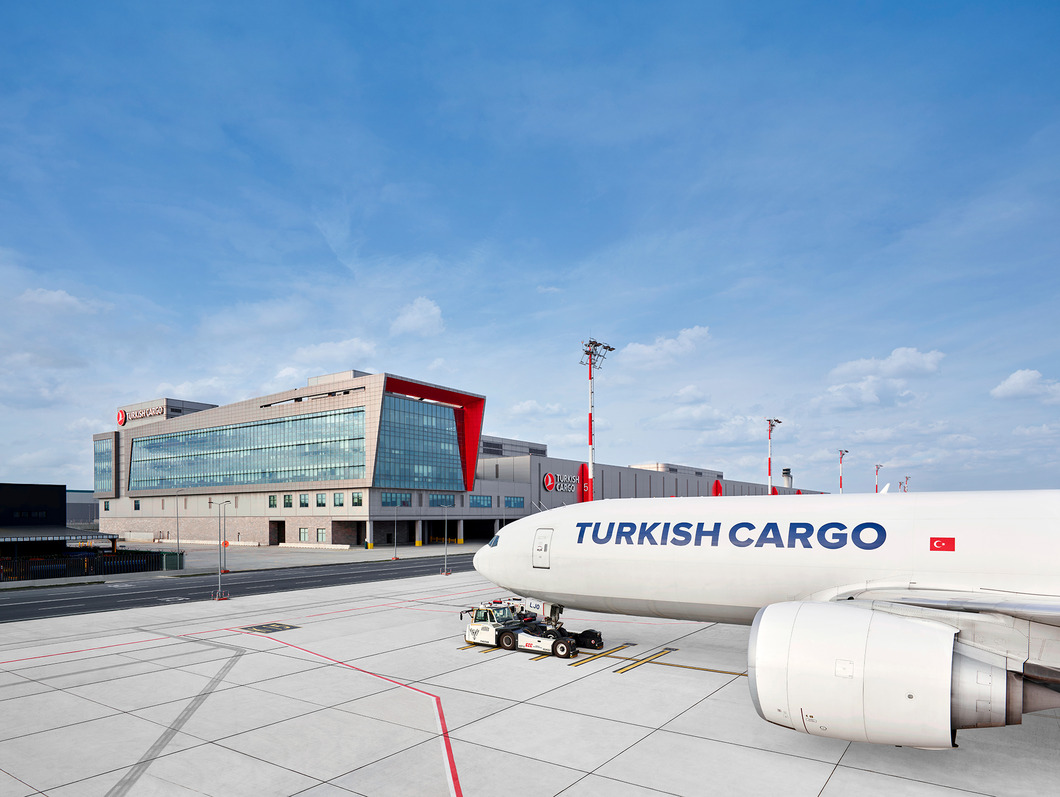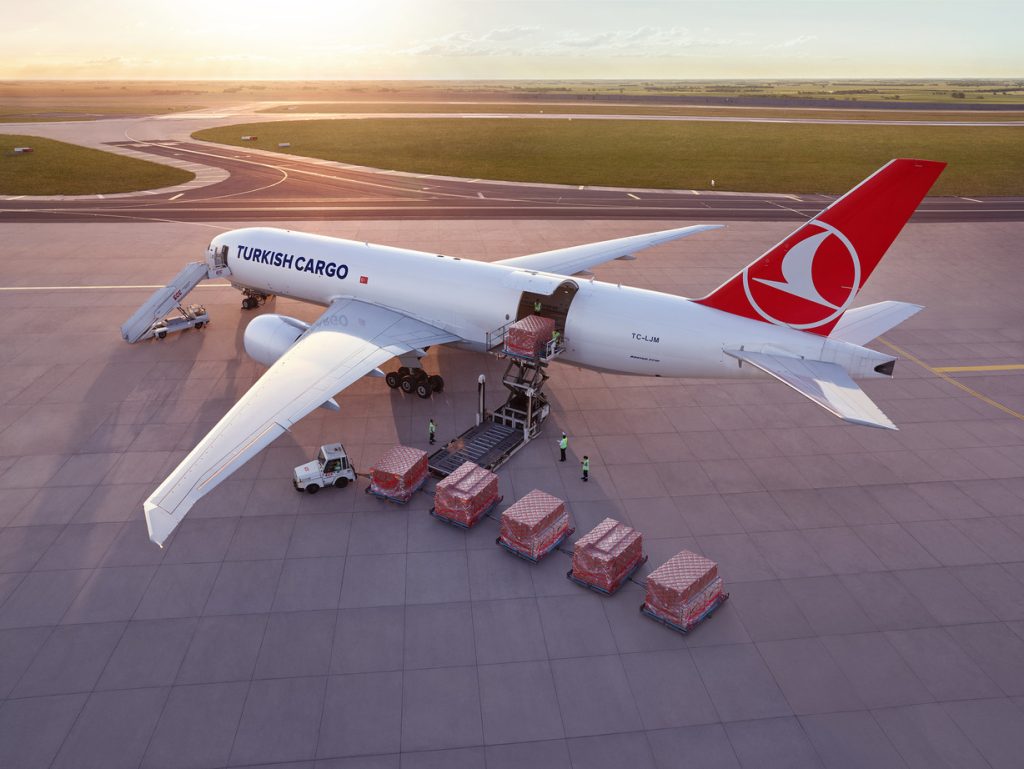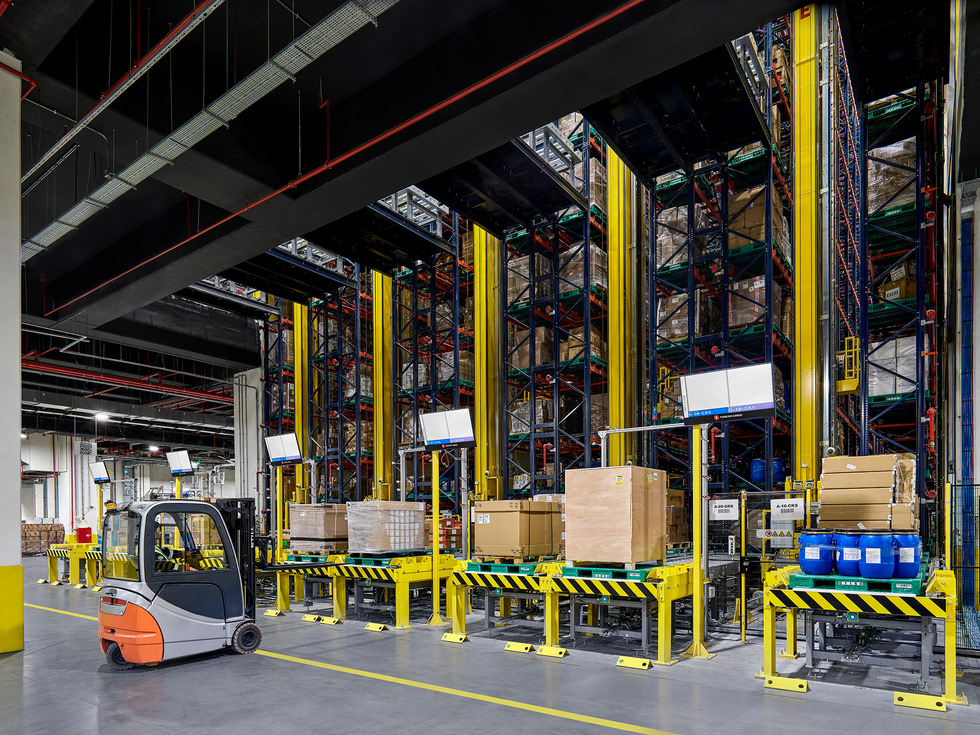Turhan Özen, Chief Cargo Officer at Turkish Airlines, outlines the vital strategic advancements for the ever-efficient Turkish Cargo…
Turkish Cargo, the air cargo section of Turkish Airlines, is primarily responsible for various goods’ local and international airfreight transportation. On its fleet of cargo planes, Turkish Cargo transfers cargo in the form of goods, products, and commodities. Administering a vast worldwide network of locations linking different cities and nations – cargo can be transported effectively worldwide because of this network. Here is everything you want to know about the Turkish air cargo operator…
Strategic Alignment In The Evolving Aviation Industry
Various elements shape Turkish Cargo’s growth targets. As the air cargo brand that flies to more countries than any other in the world, Turkish Cargo aims to maintain leadership in terms of network reach. Expanding the global network through strategic partnerships, alliances, and collaborations with other airlines and cargo operators enables the carrier to access new markets, destinations, and customer bases, thus, solidifying its position as a leading player in the global aviation industry.
To stay competitive in the dynamic air cargo industry, we prioritize understanding and anticipating the needs of our customers. We develop high-value-added products that enhance the customer experience, offering innovative services and tailored solutions regarding product variety and service quality.
The industry has undergone significant transformations in recent years due to increased demand for air cargo and the rise of e-commerce, accelerated by the pandemic. In response, Turkish Cargo has been enhancing the digitalization of air cargo processes to adapt effectively to the changing industry. The carrier has also been investing in logistics, warehousing and smart system technologies to boost operational efficiency, optimize operations, and enhance the quality of service.

As part of Türkiye’s flag carrier Turkish Airlines, Turkish Cargo has embraced the targets the International Air Transport Association (IATA) set to reduce carbon emissions and combat climate change. We are committed to minimizing carbon emissions from our operations and integrating climate change considerations into Turkish Cargo’s business processes and decision-making mechanisms. The carrier’s sustainability culture is continually evolving by implementing relevant projects. By considering these factors and continuously adapting to the changing aviation industry, Turkish Cargo aims to maintain its position as a leading global cargo brand, delivering exceptional value to its customers and stakeholders.
Competitive Advantage and Future Plans
The air freight industry in Türkiye and the Middle East is poised for a promising future, and we are confident in its upward trajectory in this dynamic region. The region has consistently experienced growth in trade volumes, driven by robust economic development and favourable business environments. This trade expansion is expected to generate increased demand for efficient and reliable transportation solutions, making air freight a vital component of the region’s logistics landscape.
The region’s exponential rise in e-commerce has significantly increased the demand for efficient air freight services to transport e-commerce shipments. As Turkish Cargo, we are well-positioned to seize this opportunity and meet the evolving needs of the thriving e-commerce sector.
Türkiye’s strategic location is a hub for international trade and logistics, gaining even greater significance as the centre of international business and economy shifts from west to east. In this regard, Turkish Cargo’s new hub, SMARTEST, located in Istanbul and equipped with state-of-the-art systems, plays a crucial role as a transit hub connecting Europe, Asia, and Africa, which are essential trade connection points. With an extensive global network linking over 340 destinations worldwide, including major cities and emerging markets, Turkish Cargo is a crucial facilitator of cross-border trade and a supporter of international supply chains.
Turkish Cargo is interconnecting the two ends of the world in a single day. Thanks to its worldwide flight network, Turkish Cargo reaches Los Angeles, the westernmost destination in the USA, in approximately 14 hours and Tokyo, the easternmost destination in Asia, in about 13 hours. Turkish Cargo has been increasing the frequency of flights to important production centres and markets worldwide. Leveraging hub advantage and network leadership, the carrier has reached a substantial competitive edge worldwide to provide its customers with comprehensive access and connection opportunities.

Post COVID-19
We foresee a positive outlook for the industry in 2023 and beyond. The global trade volume is expected to continue its growth trend, surpassing pre-pandemic levels. Air cargo played a crucial role in the recovery of global supply chains. As Turkish Cargo, we were essential in ensuring the uninterrupted flow of the world’s supply chain during the pandemic. Within this framework, Turkish Cargo is committed to delivering services that go beyond expectations and actively contributing to global trade recovery.
The increasing demand for e-commerce shipments has fuelled the industry’s continuous growth, leading to logistics and supply chain management innovations. The surge in e-commerce, combined with the growing reliance on air cargo transportation, will catalyse the expansion of our sector in the foreseeable future. Turkish Cargo is well-positioned to seize the opportunities the flourishing e-commerce market presents, further boosting our growth trajectory. Turkish Cargo offers practical solutions in terms of product service, including the shortest cut-off, quick ramp transfers connections and uplift delivery times.
To accommodate the future e-commerce industry, Turkish Cargo set up WWE- a joint venture with ZTO Express and PAL Air Ltd. This global express/ courier company is helping us to build our cross-border business by offering services for all door-to-door logistics activities, trucking, collection & distribution, freight transportation, cross-docking, and final mile delivery.
The pandemic has highlighted the resilience and adaptability of the cargo industry. It has accelerated the industry’s digital capabilities by leveraging digitalization, automation, and data analytics for operational optimization. Artificial intelligence, blockchain, and IoT are increasingly used for cargo tracking, supply chain visibility, and risk management. These trends will also shape the future of the air cargo industry, which continues to evolve in response to changing global dynamics.
Importance of Digitalization
Turkish Cargo is the fastest-growing air cargo brand in the world and aims to become one of the top three brands in the coming years. Such a target requires technological change and development, and we are building the carrier’s strategy around this goal. Data has become one of the most valuable company assets, and we regard predictive data analytics as a critical step in enhancing our operational capabilities. Data analytics, integrated fully into cargo processes, will allow for a better estimation of the performance of the supply chain network, reduce delays, and increase operational productivity by optimizing cargo routes and timings.
Thanks to the ability of the Transportation Management Systems of freight forwarders to connect directly to the airline’s operational systems, booking processes and shipment tracking processes become quicker, more practical, and seamless. Such systems will also enhance customer satisfaction by providing real-time information to the shippers, consignees, and carriers. Turkish Cargo strives to improve sales performance, understand customer requirements better, and observe trends instantaneously.
Mainstreaming the e-AWB initiative is another important step, and we have made good progress in this area. Overall, digitized processes will be more productive and sustainable.
Automation In Ground Operations
Turkish Cargo’s hub, SMARTEST, is one of the most advanced cargo facilities in the world, where cargoes are stored and transferred by computer-controlled Automated Storage and Retrieval System (ASRS) without requiring an operator or forklift. In addition, ULD storage processes are automated using ULD Storage System. Thanks to these smart storage management systems, we expedite our operational processes, minimize any unfavourable circumstances, and achieve cost savings.
‘Work Order Project’ is another investment made by Turkish Cargo in terms of technology and enables the synchronization and the checking of the in-warehouse handling processes through automated systems. Using the RPA technology in Turkish Cargo’s business processes as integrated with the carrier allows for the performance of the manually performed and recurrent works on a 24/7 basis employing our metal-collar staff without any dependence on humans. Thus, Turkish Cargo has been directing its workforce to tasks delivering more added value to boost staff motivation and minimize errors based on human factors.
Turkish Cargo is well on the way to always monitoring emerging technologies and creating scenarios with other coming novelties to enhance customer experience.





